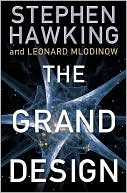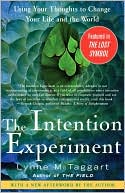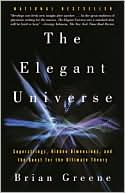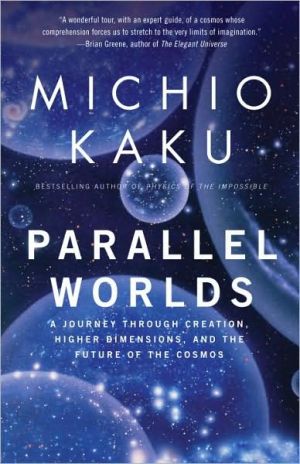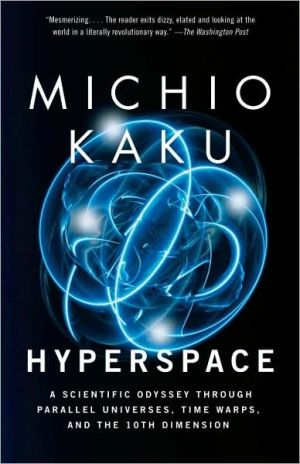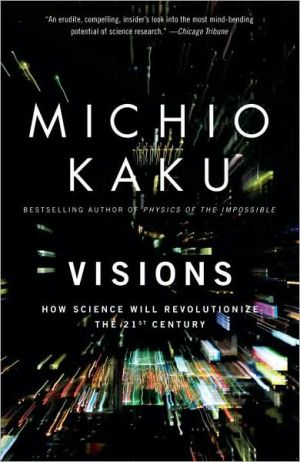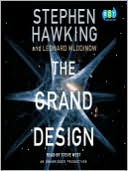Quantum: Einstein, Bohr, and the Great Debate about the Nature of Reality
“One of the best guides yet to the central conundrums of modern physics.”―John Banville Quantum theory is weird. As Niels Bohr said, if you weren’t shocked by quantum theory, you didn’t really understand it. For most people, quantum theory is synonymous with mysterious, impenetrable science. And in fact for many years it was equally baffling for scientists themselves. In this tour de force of science history, Manjit Kumar gives a dramatic and superbly written account of this fundamental...
Search in google:
“One of the best guides yet to the central conundrums of modern physics.”—John Banville The New York Times - Graham Farmelo …a wide-ranging account, written for readers who are curious about the theory but want to sidestep its mathematical complexities…Kumar will not win prizes for historical originality. This is an unapologetically orthodox account, largely derived from the standard sources and without the benefit of some of the latest scholarship…There is, however, no doubt about the author's skill in making accessible the philosophical controversies in his story, especially the debates between Bohr and Einstein.
Prologue ix\ Part I The Quantum 1\ Chapter 1 The Reluctant Revolutionary 3\ Chapter 2 The Patent Slave 31\ Chapter 3 The Golden Dane 67\ Chapter 4 The Quantum Atom 93\ Chapter 5 When Einstein Met Bohr 117\ Chapter 6 The Prince of Duality 143\ Part II Boy Physics 155\ Chapter 7 Spin Doctors 157\ Chapter 8 The Quantum Magician 177\ Chapter 9 'A Late Erotic Outburst' 201\ Chapter 10 Uncertainty in Copenhagen 225\ Part III Titans Clash Over Reality 251\ Chapter 11 Sorvay 1927 253\ Chapter 12 Einstein Forgets Relativity 281\ Chapter 13 Quantum Reality 301\ Part IV Does God Play Dice? 329\ Chapter 14 For Whom Bell's Theorem Tolls 331\ Chapter 15 The Quantum Demon 351\ Timeline 361\ Glossary 373\ Notes 387\ Bibliography 421\ Acknowledgements 439\ Index 441
\ The New York Times Book Review“Lively....a wide-ranging account, written for readers who are curious about the theory but what to sidestep its mathematical complexities....fascinating.”\ \ \ \ \ The GuardianAs a fairly innumerate non-scientist, I am perversely drawn to books about maths and science and usually abandon them with ignorance intact. However, Quantum by Manjit Kumar … is so well written that I now feel I’ve more or less got particle physics sussed. Quantum transcends genre—it is historical, scientific, biographical, philosophical.\ \ \ Kumar is an accomplished writer who knows how to separate the excitement of the chase from the sometimes impenetrable mathematics.\ \ \ \ \ Lively....a wide-ranging account, written for readers who are curious about the theory but what to sidestep its mathematical complexities....fascinating.\ \ \ \ \ A super-collider of a book, shaking together an exotic cocktail of free-thinking physicists, tracing their chaotic interactions and seeing what God-particles and black holes fly up out of the maelstrom… Provides probably the most lucid and detailed intellectual history ever written of a body of theory that makes other scientific revolutions look limp-wristed by comparison.\ \ \ \ \ Kumar brings lucidity and a sense of drama to what is usually considered by lay readers as an esoteric, bubble-chambered subject. He does this without sacrificing the ‘science of it’ at the altar of readability. The triumphs and the tribulations, the politics and the physics, the humanity and the genius of the protagonists all collide to produce the sort of energy that we usually expect in a Le Carre thriller.\ \ \ \ \ Science editor and writer Kumar (coauthor, Science and the Retreat from Reason) adds to the growing number of popular works on the history of quantum mechanics and to the continuing debate on the sufficiency of quantum theory as a representation of "reality." He devotes the bulk of his book to the work and the debates of the physicists who developed quantum mechanics in the first half of the 20th century. Almost inevitably, Kumar repeats many of the quotes from Bohr, Einstein, and other greats that have already been offered by authors of similar works. His greatest strength is his clear discussion (without mathematics) of the advances and debates in the discipline. The last few pages of the text carry the history of physics into the 21st century as experiments continue to support the standard theory but do not yet end the discussion. VERDICT This is especially good for lay readers who would enjoy an excellent story about the long struggle of scientists to understand an important field of modern science.—Jack W. Weigel, Ann Arbor, MI\ \ \ \ \ …a wide-ranging account, written for readers who are curious about the theory but want to sidestep its mathematical complexities…Kumar will not win prizes for historical originality. This is an unapologetically orthodox account, largely derived from the standard sources and without the benefit of some of the latest scholarship…There is, however, no doubt about the author's skill in making accessible the philosophical controversies in his story, especially the debates between Bohr and Einstein.\ —The New York Times\ \ \ \ \ With vigor and elegance, Kumar describes the “clash of titans” that took place in the world of physics in the early 20th century, between physicists who did and those who did not believe in the quantum—the strange concept that we now know to be the underpinning of reality. The titans in Kumar's account of the conflict are Albert Einstein and Niels Bohr. In 1900, Max Planck discovered that electromagnetic radiation and the energy of light are transmitted not in a continuous flow but in small packets called “quanta” (singular, quantum). Bohr applied the idea of quantum to electrons, leading to the development of quantum mechanics. Bohr's theory explained experimental results that were inexplicable in classical theory. Einstein rejected Bohr's theory overturning reality in dangerous but also thrilling ways. The clash culminated at the 1927 Solway conference. Kumar, founding editor of Prometheus and a consulting science editor for Wired UK, recounts this meaty, dense, exciting story, filled with vivid characters and sharp insights. With physics undergoing another revolution today, Kumar reminds us of a time when science turned the universe upside down. 16 pages of photos. (May)\ \ \ \ \ A staggering account of the scientific revolution that still challenges our notions of reality. Wired UK consulting science editor Kumar (Science and the Retreat from Reason, 1997) provides a gripping narrative of the birth of atomic physics in the first half of the 20th century. Max Planck described his 1900 discovery-that light acted on matter in packets of energy rather than continuous waves-as "simply an act of desperation." Nonetheless, his discovery was an outgrowth of technological problems faced by the burgeoning German lighting industry. In 1905, Albert Einstein, another of the fathers of quantum physics (as well as relativity theory), pointed the way to the discovery of the photoelectric effect and the development of lasers by relating the frequency of light waves to photon energy. However, years later he wrote that quantum physics reminded him "a little of the system of delusions of an exceedingly intelligent paranoic, concocted of incoherent elements of thoughts." Other puzzling discoveries led Niels Bohr to identify isotopes and to recognize that radioactivity was a fundamentally unpredictable nuclear rather than atomic phenomenon. In 1925, Bohr's younger associate Werner Heisenberg had a flash of insight that transformed the seemingly paradoxical nature of the new physics and with it called into question the nature of objective reality-it is impossible, he wrote, to achieve a simultaneously exact measurement of quantum physical parameters such as the position and momentum, or the time and energy of a nuclear-scale event. Until his death, Einstein opposed Bohr and Heisenberg's renunciation of the possibility of representing reality "as independent of observation." The debatestill rages today, spawning new areas of research in quantum computing and even teleportation. Kumar evokes the passion and excitement of the period and writes with sparkling clarity and wit. Expertly delineates complex scientific issues in nontechnical language, using telling detail to weave together personal, political and scientific elements. Agent: Peter Tallack/Conville & Walsh\ \ \ \ \ Exhilarating. . . . Reading [Quantum] is a bit like lifting the hood of your mind and moving the working parts around; it’s challenging and trippy—as only the Dr. Seuss realm of the quantum can be.— Laura Miller\ \ \ \ \ “As a fairly innumerate non-scientist, I am perversely drawn to books about maths and science and usually abandon them with ignorance intact. However, Quantum by Manjit Kumar … is so well written that I now feel I’ve more or less got particle physics sussed. Quantum transcends genre—it is historical, scientific, biographical, philosophical.”\ \ \ \ \ “Kumar is an accomplished writer who knows how to separate the excitement of the chase from the sometimes impenetrable mathematics.”\ \ \ \ \ [Kumar] leavens the mind-bending with sketches of the remarkable human beings involved in this godlike enterprise.— Sara Lippincott\ \ \ \ \ A necessary, mesmerizing and meticulous volume.— Sam Coale\ \ \ \ \ “Kumar brings lucidity and a sense of drama to what is usually considered by lay readers as an esoteric, bubble-chambered subject. He does this without sacrificing the ‘science of it’ at the altar of readability. The triumphs and the tribulations, the politics and the physics, the humanity and the genius of the protagonists all collide to produce the sort of energy that we usually expect in a Le Carre thriller.”\ \ \ \ \ “A super-collider of a book, shaking together an exotic cocktail of free-thinking physicists, tracing their chaotic interactions and seeing what God-particles and black holes fly up out of the maelstrom… Provides probably the most lucid and detailed intellectual history ever written of a body of theory that makes other scientific revolutions look limp-wristed by comparison.”\ \ \ \ \ “One of the best guides yet to the central conundrums of modern physics.”\ \

